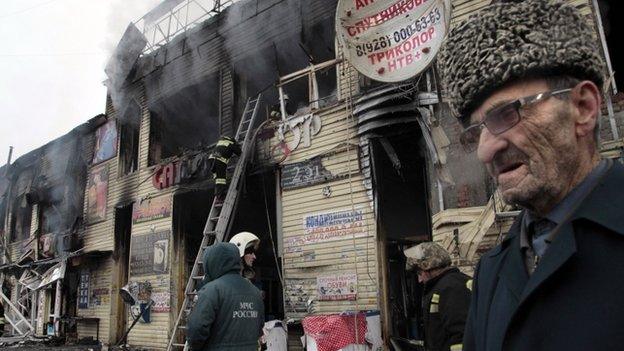Islamic State may threaten Russia's Caucasus
- Published
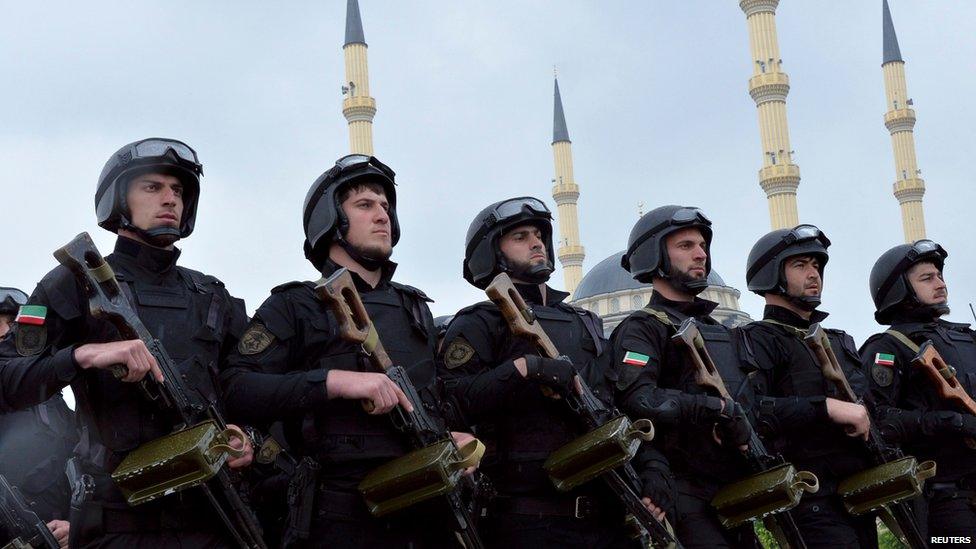
Moscow-backed security forces have been battling Islamist insurgents in Chechnya and other Russian republics of the Caucasus
The head of Russia's Security Council has identified Islamic State (IS) as the greatest threat to world peace and security, and it seems the danger could be getting closer to home.
The militant Islamist group has proclaimed the establishment of a wilayaat, or province, in Russia's mainly-Muslim North Caucasus, suggesting it may be gaining the upper hand in a battle for control over radical forces there.
The statement follows an anonymous audio message posted online pledging allegiance to IS on behalf of militants in four regions.
But it remains unclear how far - and high - that support may reach among militants previously loyal to the banned, al-Qaeda-affiliated group Caucasus Emirate, which has long sought to carve out an Islamist state in the region.
Caucasus Emirate's presumed head has made no comment. Meanwhile, analysts say most militants who have publicly switched support to IS are largely unknown figures.
Rooted in the Chechen separatist movement of the 1990s, Caucasus Emirate has committed numerous terror attacks against civilians, including the Moscow metro bombing of 2010 that killed dozens. But its insurgency has recently focused on Russia's security forces.
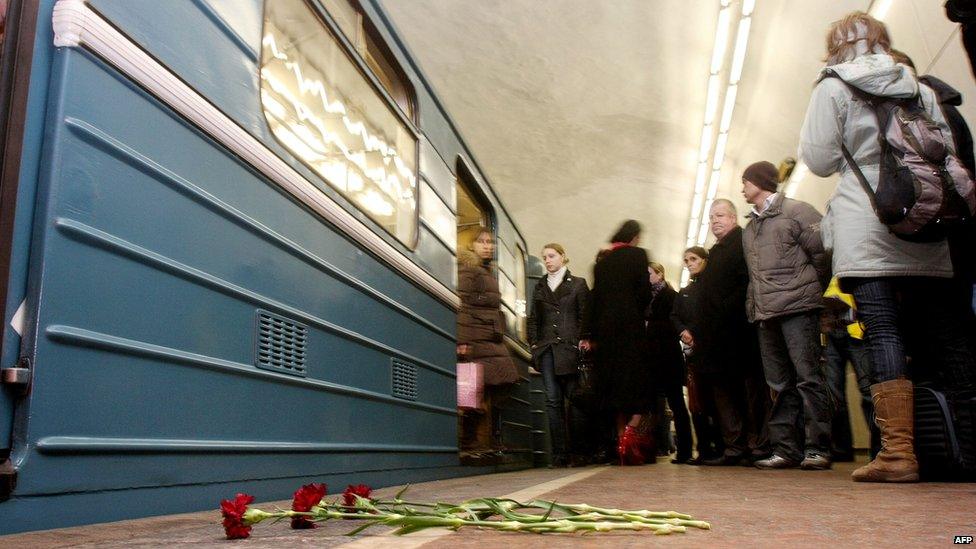
The Caucasus Emirate militant group was linked to the 2010 attack on Moscow's metro
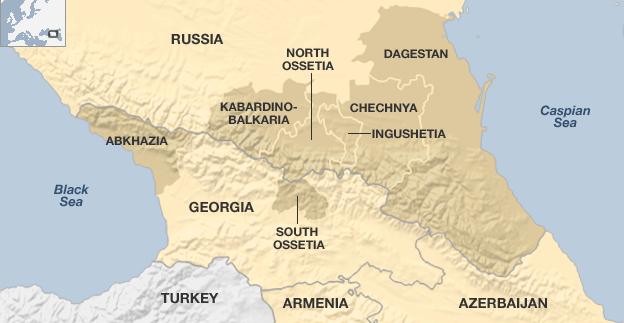
Some fear an upsurge in deadly attacks if the network does indeed affiliate itself with IS.
"I don't think they are planning just to separate off a piece of the North Caucasus for themselves, to create a territory controlled by their jihadists," Grigory Shvedov of the internet news agency Caucasus Knot believes.
"I think the plan would be to use the region for terror attacks in Russia, which would show their reach and put them 'on the map'," he adds.
It is perhaps that heightened danger, coupled with renewed IS gains in Syria, which prompted a rare phone call between Russian President Vladimir Putin and US President Barack Obama on Thursday.
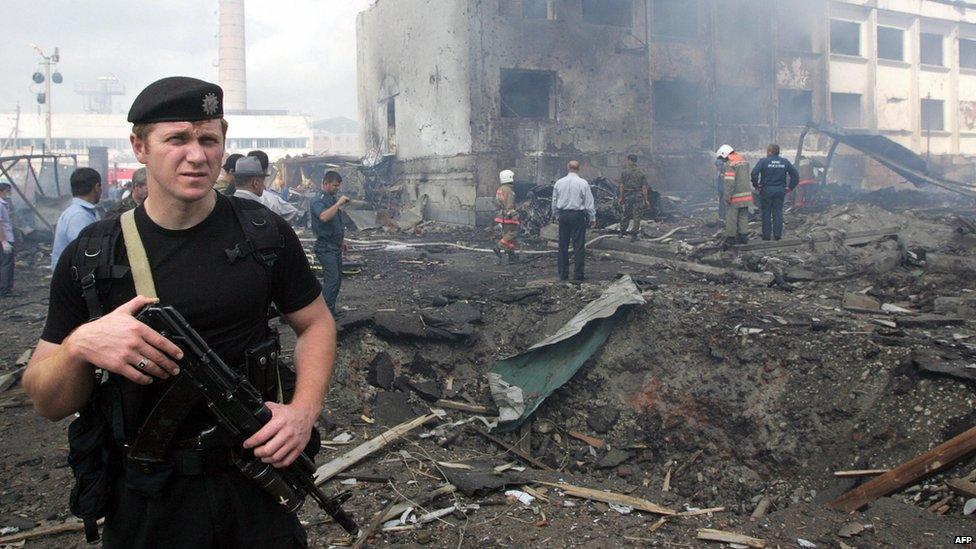
Islamist rebels have attacked Russian security forces in the North Caucasus
The White House says Islamic State was the top issue for discussion: the leaders' last call in February focused exclusively on the Ukraine crisis.
"Of course it is in our mutual interest to co-operate on this with the West, though we disagree on other issues," former Foreign Minister Igor Ivanov told the BBC.
"Modern security threats are international, we can't fight them alone," he added - a theme that Russian officials have begun to stress.
'Frustrated rebels'
The head of Chechnya, Ramzan Kadyrov, has dismissed claims of an IS province in the region as "bluff", but also said the threat of the IS "virus" was not being ignored.
"We will destroy the devils and bandits without mercy," he pledged.
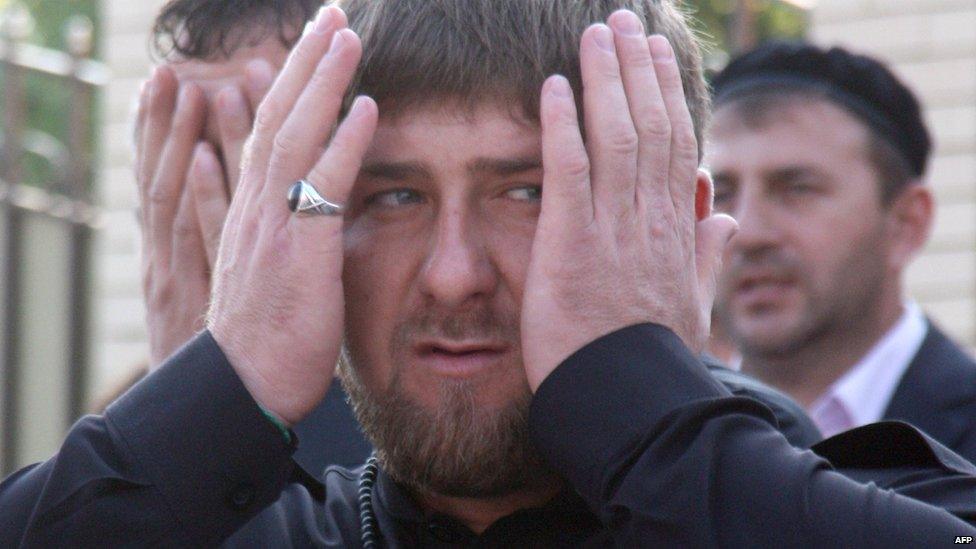
Chechen leader Ramzan Kadyrov has been accused of heavy-handed tactics and human rights abuses
Whilst highly controversial, his tough methods have been relatively successful in suppressing the threat from the Caucasus Emirate in Chechnya - but the usual tactics could backfire badly with IS.
"I think a lot of rebels, especially the young, are very frustrated and would support a more radical response," believes Grigory Shvedov, and says that IS would back that.
Official estimates of how many Russian citizens have travelled to Syria and Iraq to join IS differ, though the most conservative count is more than 1,000.
Just this month, 13 potential recruits were returned to Moscow from the Syrian border, including a teenage female student.
On Thursday, Russia's Anti-Terrorism Committee said two people killed in Ingushetia were suspected of trying to recruit fighters for IS.
- Published2 June 2015
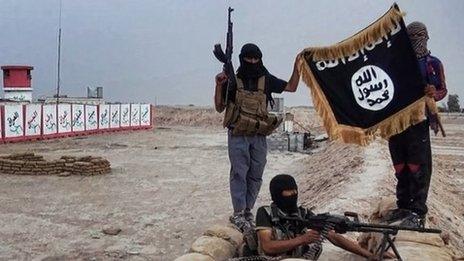
- Published3 December 2015
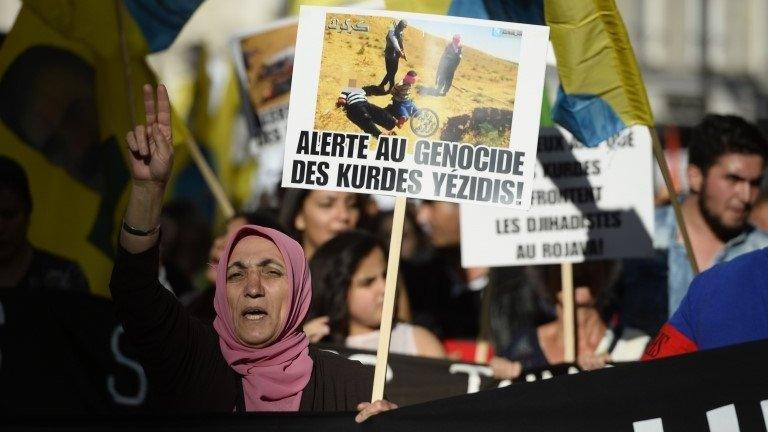
- Published21 May 2020
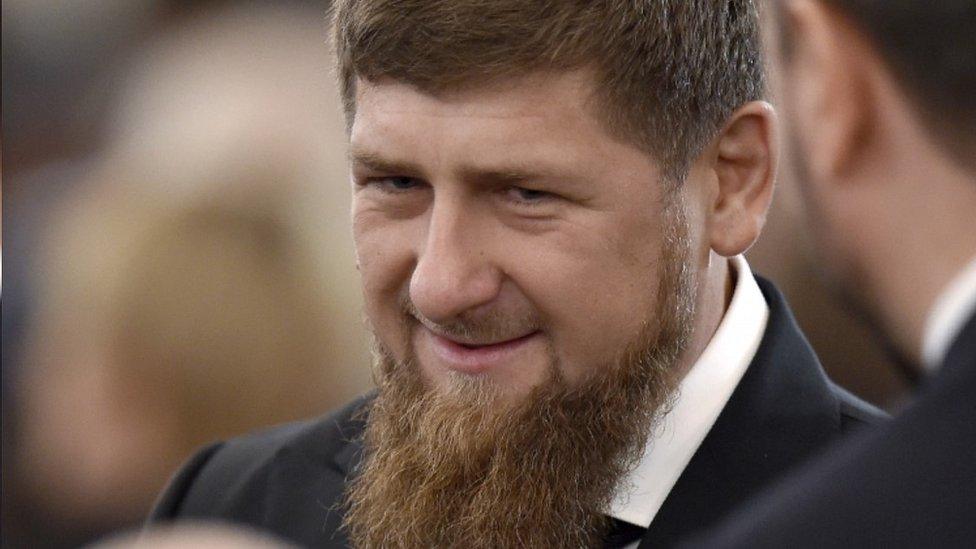
- Published19 December 2014
